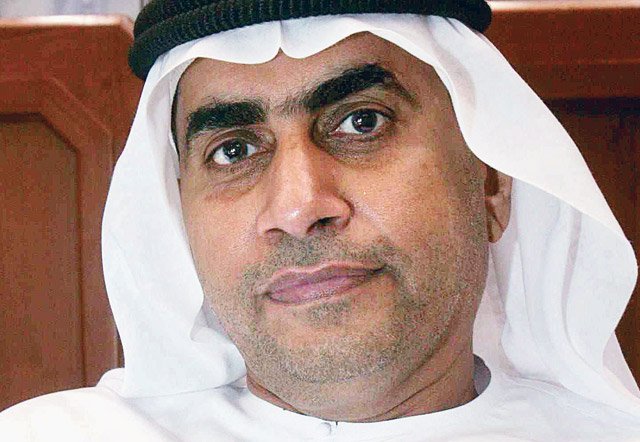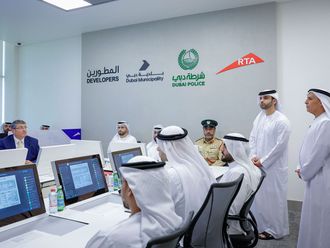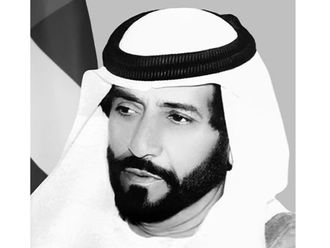
Abu Dhabi: The Federal National Council (FNC) demanded enacting a law to protect the Arabic language from foreign influences — particularly from the increasing prevalence of English in both public and private spheres of use.
"Only a law can protect the Arabic language, its viability and prestige as a language of business, science and scholarly publications and its perceived "purity" in the face of foreign influences," said Ahmad Bin Shabib Al Daheri, First Deputy Speaker of the council.
Al Daheri told Gulf News ahead of an FNC debate on efforts to preserve the official language of the country, Arabic is the nation's identity and must prevail as such.
He will be quizzing the Minister of Culture, Youth and Community Development, Abdul Rahman Mohammad Al Owais, on efforts to protect Arabic.
Citing laws to protect the French language in France, Al Daheri said a law must mandate the use of Arabic in all economic, social and intellectual areas of life and the translation into Arabic of any publications, documents and presentations originally written or held in a foreign language.
In 2008, the government took a decision to use Arabic as the official language in all federal authorities.
The FNC has urged federal universities to accept more students who do not speak English and to consider teaching some subjects in Arabic.
At the grade school level, however, the House voted down a proposal to no longer require that maths and science be taught in English as part of a pilot programme at selected state-run schools known as Madares Al Ghad or Schools of the Future.
An ad hoc committee of the House presented a set of recommendations for schools at all levels to the Minister of Education, Humaid Mohammad Obaid Al Qutami, who will present them to the UAE's Cabinet of ministers.
They include improving Arabic language classes and how they are taught and revising the policies of federal universities regarding English-language admissions requirements and teaching subjects in English.
The committee also suggested reviewing foreign curricula in the grade school pilot programme to ensure they are compatible with Emirati values and that teachers at schools in the pilot programme are Emiratis.
Dr Abdul Rahim Al Shahin, a member from Ras Al Khaimah, said the current policy of federal universities to teach courses in English was technically a violation of the law.
"The UAE's General Education law says Arabic is the language of instruction in schools," he said. "By-laws of UAE University say Arabic is the language of instruction."
The FNC also demanded that UAE University, the Higher Colleges of Technology and Zayed University reconsider the decision to teach technical subjects as well as humanities in English.
Agenda
- The FNC will also debate the UAE foreign policy.
- Four more questions will be presented to Dr Rashid Ahmad Bin Fahd, Minister of Environment and Water about efforts to benefit from rainwater, maternity leave in the Federal Human Resource law, the role of curricula in raising awareness of the FNC and assistance for the unemplopyed.













